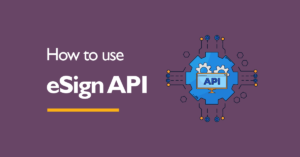These are worrying times to be a front-end developer. The UX/UI field is under threat. ChatGPT can write and debug code. AI code generators can create websites in a flash.
Whispers going around the community claim that front-end development will soon become the next victim of artificial intelligence.
But is this really the end of the road for front-end development as we know it? Would it still be possible to have a viable front-end career?
Continue reading to find out more about AI in front-end development going forward!
How has AI affected front-end development?
Frontend development deals with aspects of web technology that the user can experience.
When you look at a website on your computer, for instance, those graphics and clickables are the work of a front-end developer.
So, what does this have to do with AI?
In the past few years, AI-powered tools have gradually crept into the front-end space.
Thanks to access to massive swathes of historical data, they now understand common design principles and acceptable practices.
Recently, Github CoPilot has proven to be a helpful pair programmer with extensions across popular editors like VSCode.
AI can help developers generate templates for building projects. You can also use it for testing and error detection.
Also, people are now asking ChatGPT for solutions to coding problems. Platforms like Stack Overflow are also pivoting to AI solutions in order to stay relevant and competitive.
How AI can improve front-end development
AI can solve the following pain points that front-end developers face in their work.
- Improve the delivery speed of projects: An AI assistant can speed up your workflow by helping you generate code faster. AI-powered platforms like AppyPie and Taskade can generate front-end code for you in seconds. You can even build apps in record time using Flutterflow.
- Reduce human error: AI code generators don’t need coffee breaks. They can pump out clean code all day with very few errors. This will also reduce the time needed to debug faulty code.
- Improve developer efficiency: Say you are stuck on one problem. You can easily consult your AI “code buddy” for assistance. The system will scour mountains of available online data to find the missing puzzle piece. Popular UI design tools like Figma are already being enriched by AI plugins from the community.
- Enhance the user experience: Since AI tools work in tandem with machine learning algorithms, developers can use them to get better insights into consumer needs and market trends. This will affect their design decisions in order to improve the user experience.
- Reduce expenses: Working with AI tools reduces the number of billable hours and resources you need to complete a project. This limits your expenses to your stipulated budget.
Will AI put my front-end job at risk?
Let’s face it: AI is coming for some front-end jobs. Low-grade devs who offer the bare minimum will lose their jobs, unfortunately.
Also, careers in software testing will also come under massive threat. No human can detect errors better than machines.
But should you panic? I don’t think so.
The reasonable thing for front-end developers to do now is to upskill and learn more about AI. You need to become friends with your foe.
Learn how you can use AI to improve the quality of services you provide. Figure out your skill gaps and use AI to plug them. You need to adapt or wither away.
You can dive deeper into machine learning (through TensorFlow.js and Babylon.js) to understand how to customize your AI experience.
Another option would be to learn design principles. Pivoting in this direction will keep you viable in the field, because someone has to curate the machines — and design thinking will get you a seat at this table.
You can also learn prompting to be able to craft pinpoint queries that will generate the right results or code for any project.
Common concerns about AI in front-end development
- Designs will become minimalistic to a fault. As developers tap the same source for inspiration, the bubble of creativity will continue to shrink into near blandness.
- Developers will charge more for work they don’t actually do. Knowing that you can generate the code for an entire webpage in minutes will reinforce bad habits.
- Customers will stop paying for front-end development services. Why pay a developer if you can generate a quick site on SquareSpace?
- Many people will lose their jobs. Just like the smartphone took mail carriers out of the market, some front-end developers will have to switch to new careers. This will end up becoming one of those great turning points in history — an epoch-defining invention.
- The human element will disappear from designs. AI will force businesses to start optimizing for clicks and impressions, sacrificing personality and creativity in the process.
- Accessibility and intrinsic bias will also remain an issue for AI design tools. Creating an inclusive product could still be an issue for AI tools. Moreover, the bias in historical data will inadvertently corrupt the AI’s knowledge source.
What is the future of AI in front-end development?
Despite the pessimists worried about AI overlords taking over, I don’t see a future without front-end development. At least, not until the end of the decade.
People are visual beings. We want to see functionality packaged beautifully and responsively.
We crave that X factor in designs that robots can’t provide. We want websites to make us feel something.
So I think the current Wild West of “AI over everything” will settle down. The universe will self-correct in favor of creators — it always does.
Going out on a limb, I think a new career path will emerge in the place of traditional front-end development.
This new path will combine both UI/UX and front-end as a single package. I also think front-end and back-end development will eventually become inseparable. AI will make full-stack developers hotcakes in the tech world.
Design thinking and advanced problem-solving skills will also be a must-have for developers. The mantle of prompting the AI to create human-centric designs will fall on new front-end developers.
So, don’t miss the train to pivot. Start upskilling now.
Who wrote this?
Jose is an avid learner, passionate about emerging technologies. When he is not behind his PC writing code, check that his location may have changed.
- This author does not have any more posts.





